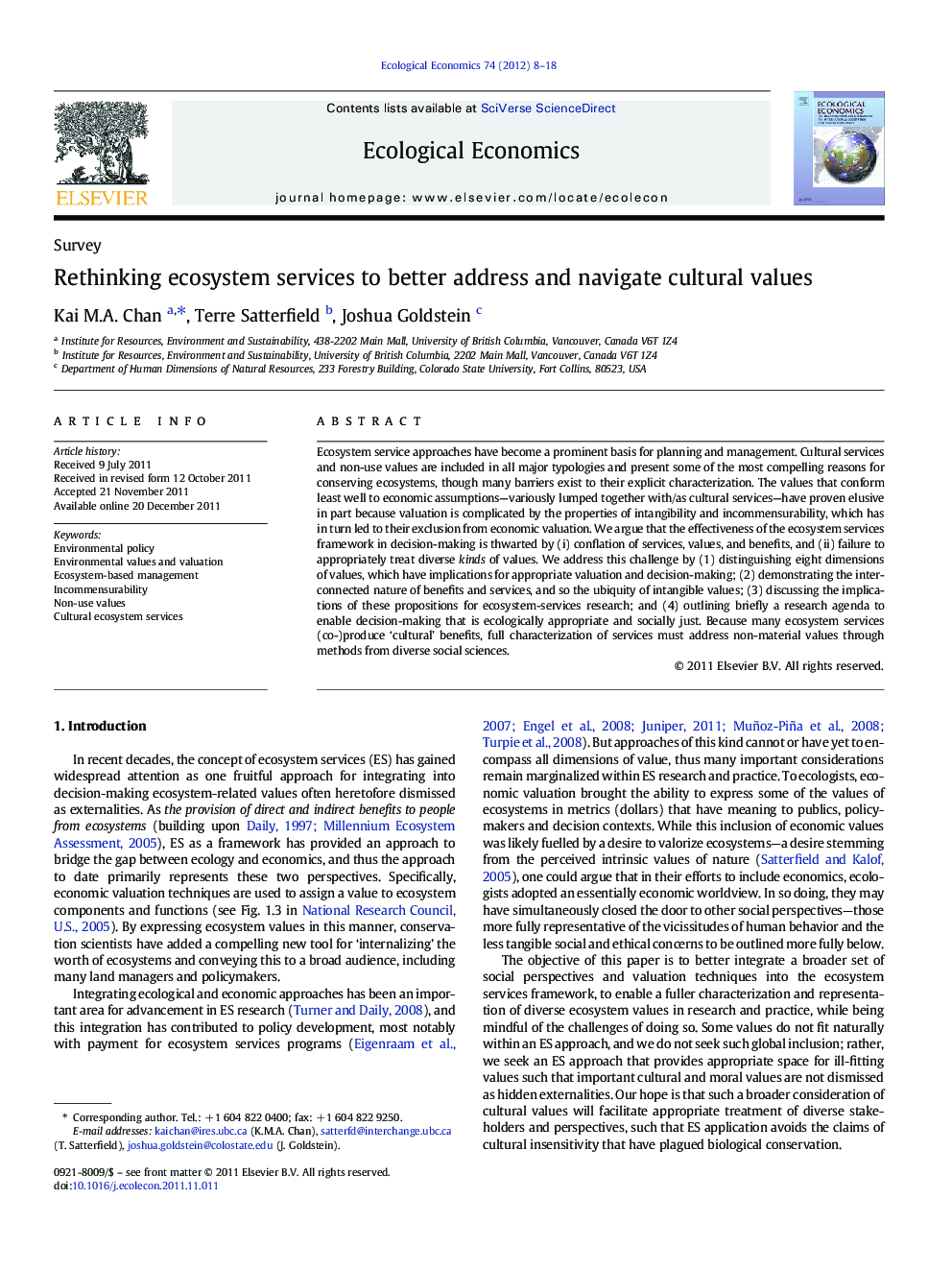| Article ID | Journal | Published Year | Pages | File Type |
|---|---|---|---|---|
| 5050434 | Ecological Economics | 2012 | 11 Pages |
Ecosystem service approaches have become a prominent basis for planning and management. Cultural services and non-use values are included in all major typologies and present some of the most compelling reasons for conserving ecosystems, though many barriers exist to their explicit characterization. The values that conform least well to economic assumptions-variously lumped together with/as cultural services-have proven elusive in part because valuation is complicated by the properties of intangibility and incommensurability, which has in turn led to their exclusion from economic valuation. We argue that the effectiveness of the ecosystem services framework in decision-making is thwarted by (i) conflation of services, values, and benefits, and (ii) failure to appropriately treat diverse kinds of values. We address this challenge by (1) distinguishing eight dimensions of values, which have implications for appropriate valuation and decision-making; (2) demonstrating the interconnected nature of benefits and services, and so the ubiquity of intangible values; (3) discussing the implications of these propositions for ecosystem-services research; and (4) outlining briefly a research agenda to enable decision-making that is ecologically appropriate and socially just. Because many ecosystem services (co-)produce 'cultural' benefits, full characterization of services must address non-material values through methods from diverse social sciences.
